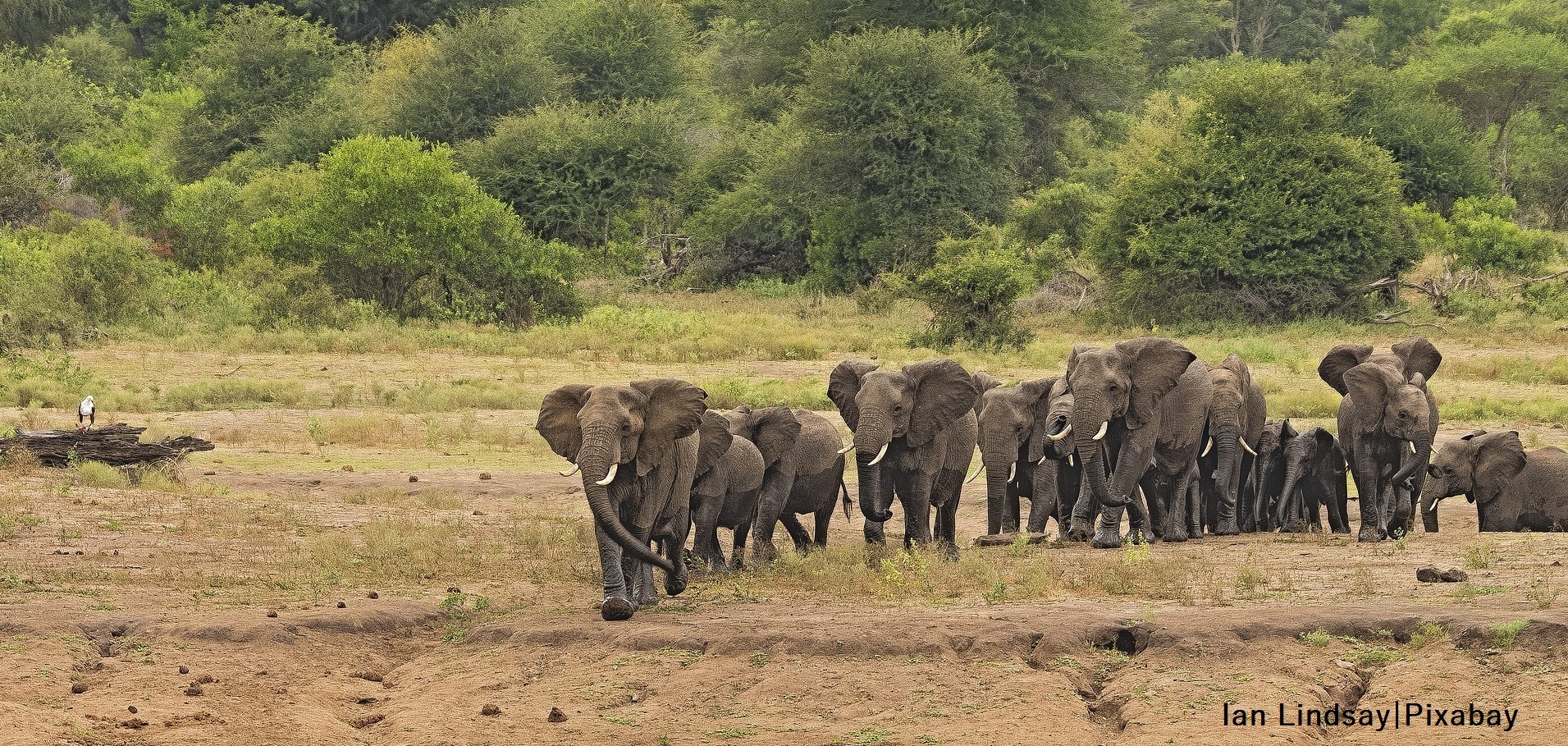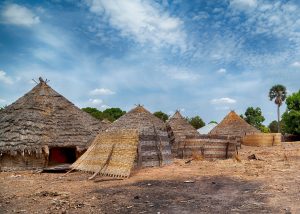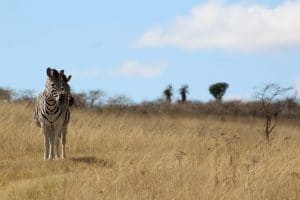MEDIA RELEASE


A Wave Of Legislative Proposals Throughout Europe To Restrict The Legal Import Of Hunting Trophies Threatens The Rights And Livelihoods Of African Communities Involved In Conservation, And The Wildlife Itself
For Immediate Release: July 7 2022
Representatives of African rural communities lead a mission to explain to the UK and European lawmakers how proposed legislation undermines their rights, livelihoods, and wildlife conservation efforts:
- Southern African community leaders met with European Union (EU) and UK government leaders to explain how hunting supports rural livelihoods in the region.
- The UK, Belgium and Italy are all considering hunting trophy import bans in a bid to curb hunting tourism internationally.
- The proposed bans would deter hunting and reduce critical revenue that communities rely on for their social development and wildlife conservation programmes.
- The delegation met senior UK and Belgian government officials and testified at a European Parliament special hearing, to make the case for their communities’ right to manage, use and benefit from their wildlife.
During a round trip in Europe, from 23 May to 5 June 2022, leaders of Southern African communities that practice wildlife conservation have met with European policymakers to warn that the proposed restrictive laws will have serious negative consequences for millions of their people.
Belgium, Italy and the UK are all seeking to introduce new legislation that would ban hunters from bringing their hunting trophies home – a move that would undermine the rights and livelihoods of rural communities that live with wildlife. Although these policies are intended to curb legal hunting and thus protect animals, in reality they will negatively impact community-based conservation programmes and wildlife populations.
Representatives of the Community Leaders Network of Southern Africa (CLN), an organisation that represents hundreds of communities involved in wildlife conservation across nine Southern African countries, met with Zac Goldsmith, UK Minister for International Environment and Climate, and UK Animal Welfare and Forests, as well as representatives from the House of Lords and the House of Commons to discuss the government’s plan to introduce a bill containing a trophy import ban. The government intends to introduce the bill in current parliament. It is worth noting that British authorities seem to have no intention of stopping trophy hunting within the UK.
The delegation also met with senior Belgian government officials in Brussels regarding Belgium’s proposed trophy import ban in Belgium. While in Brussels, they met with officials from the European Commission to discuss the links between local livelihoods and the use of wildlife.
In France, they met with a member of the French Parliament, UNESCO officials and the French Development Agency (AFD) to discuss and ways in which CLN can work more closely with European and international institutions on matters of common interest.
In Germany, the delegation had an opportunity to present at the International Conference of Wildlife Management hosted by Resource Africa that included in-depth discussions on trophy hunting in Africa. They attended several meetings with environmental officials and Members of Parliament where they identified common ground relating to community conservation.
On 1 June, CLN testified before the European Parliament on the realities for African local communities and indigenous people, at a special public hearing organised by French Member of the European Parliament (MEP) Michèle Rivasi of the Green Party.
“There is a lot of misinformation on trophy hunting circulating publicly. Misinformed citizens do not realise that hunting can be an effective tool for conservation and for supporting rural livelihoods in Africa as well as the likely impact that a trophy import ban might have,” said Dr Rodgers Lubilo, CLN chairperson and a delegation member.
Hunting trophy import bans could have devastating, unintended consequences for wildlife conservation programmes in southern Africa by undermining the incentives for local people to keep wildlife on their land despite the costs they incur due to human-wildlife conflict.
Firstly, a trophy import ban could deter hunters (for whom keeping a trophy is an integral part of the hunting experience) and thus reduce the number of licences sold. Alternatively, a hunter may not be bothered about bringing a hunting trophy home so would still hunt but would not pay the additional fee that is involved in keeping the trophy (for some hunts, the cost of the trophy can be as much as the cost of the hunt).
In both cases the amount of revenue generated by hunting would be significantly reduced which would, in turn, undermine wildlife conservation and rural development efforts undertaken by community-based organisations that rely, to a large extent in some communities, on income from hunting.
“Where I come from, one hundred percent of the money from hunting goes to the communities and it pays for conservation, said Maxi Pia Louis, a delegation and CLN executive member from Namibia.
“The reason why there are thousands of elephants in southern Africa, the reason why we have rhinos surviving outside parks, among the Namibian communities – is that our model is working,” said Ms. Louis.
Hunting funds rural community development
Hunting is a major source of revenue for African communities that use their natural resources to support sustainable rural development.
Data from five southern African countries (Botswana, Namibia, Tanzania, Zambia and Zimbabwe) estimate that, prior to the pandemic, almost US$18 million was generated annually by community-based organisations from hunting. This income provides benefits to an estimated eight million people who manage lands that cover nearly half a million square kilometres.
The income is used for community development – to build schools, clinics, housing and water infrastructure as well as employing thousands of people, but also to finance wildlife management and anti-poaching operations.
Trophy import bans impact communities and wildlife conservation
Previous bans or restrictions on hunting have demonstrated the likely damaging impacts of trophy import bans for both rural livelihoods and wildlife conservation.
“In my country, we witnessed first-hand what happens when blanket bans on hunting are passed without proper consultation with rural communities,” said CLN delegation member Siyoka Simasiku in Botswana.
“Besides the income, the meat distributed after successful hunts is an important source of nutrition for some of the poorest people in our country, especially women-headed households,” according to Mr Simasiku.
“The first recognised threat to wildlife in Africa is not hunting, but loss of habitat and wildlife crime”
Decision-making processes on conservation and community issues needs to be based on sound scientific evidence to be effective once implemented.
Amy Dickman, Professor of Wildlife Conservation at Oxford University, shares CLN’s concerns.
“Currently, income generated from UK citizens and other foreigners paying to hunt a small number of animals provides the kind of incentives required to conserve large areas of habitat and key animal populations,” said Prof. Dickman.
“Trophy hunting is not a key threat to the persistence of any species today, but habitat loss is a primary threat. In Africa, trophy hunting areas conserve more land than National Parks. Photo-tourism is already insufficient even for funding those Parks, so there is no alternative funding stream ready to secure that globally invaluable wildlife habitat and biodiversity. Hasty bans will only accelerate habitat loss and conservation threats,” said Prof. Dickman.
“Looking back on the tour, we found much common ground with the decision makers in the UK and the EU.” Reflected Maxi Louis, “These leaders and the people they represent are all concerned about the rights of indigenous people and local communities, the biodiversity crisis and the impacts of climate change – so are we.”
The Community Leaders Network urges European policymakers to consider the scientific evidence on hunting’s impact on conservation as well as the implications for communities at the frontlines of conservation, in their formulation of hunting-related legislation.
ENDS.
NOTES FOR EDITORS
About the Community Leaders Network (CLN)
CLN is a collaborative grouping of rural representatives from Angola, Botswana, Malawi, Mozambique, Namibia, South Africa, Tanzania, Zambia and Zimbabwe whose vision is to realise resilient local communities in southern Africa whose rights to manage natural resources on their land are respected nationally and internationally. CLN seeks to amplify the voices of local communities through participation and influencing policy negotiation, development and implementation processes to ensure informed decision-making at national, regional and international levels that reflect the needs and rights of local communities to manage and benefit from their natural resources.
About Resource Africa
Resource Africa Southern Africa supports rural African community efforts to secure their rights to access and sustainably use their natural resources in order to sustain their livelihoods. We help to build strong platforms for collaboration, knowledge, skills sharing, and joint advocacy to ensure community voices are heard in debates that materially affect their lives. We believe that when rights are upheld and incentives for conservation are provided to those who live with wildlife there will be positive conservation outcomes benefitting people and nature.
For further information or to arrange interviews with CLN representatives, please contact:
Vilio Muunda
CLN Coordinator
communityleadersnetwork@gmail.com
WhatsApp: +264 81 805-6198



